Help with short-term memory - Tip for ADDs and ADHDs
Make space in your head
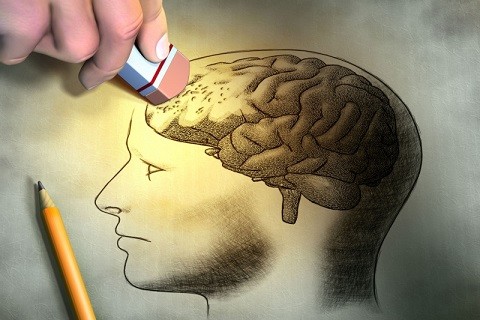
The email below from John Loporto, author of 'The Davinci Method', I received in my mailbox earlier. It is a handy tip for people who are stressed by all the things they have to remember. Think of all those small, yet important, responsibilities such as appointments, chores, the shopping, to-do's, administration, it goes on and on. But also think about the nice things you just don't want to forget.
A typical ailment of ADDs and ADHDs is that they tend to forget these kinds of tasks. Well, our short-term memory is simply not optimal and you don't want to run around neurotically trying to remember everything. So Just outsource that short-term memory.
This method ensures that you less stressin your head because you no longer have to frenetically remember everything. This way, your head is emptier and you can focus on the big things you really care about and enjoy. You can do the small tasks or ideas as it were 'safely' forgotten without any consequences. After all, you can always your 'memory' read: list consulting. Definitely useful therefore for people with ADD and ADHD.
At the bottom of the English text from the e-mail you will find the Dutch translation. Further down the page, I write what I do myself to keep my head as empty as possible.
How to outsource your short-term memory - Email John Loporto
Click here to slide open John Loporto's email?
Want to know how to easily keep track of the little things while you're coming up with the BIG ideas? Read on ?
How to be Organised DaVinci Style
DaVinci types have a difficult time with short-term memory. We tend to fill it with tons of visual imagery and thoughts. Albert Einstein for example was known for his remarkably poor short-term memory. He would be walking through campus and stop in his tracks, realising he had forgotten where he was 'supposed' to be going. He didn't even remember his own phone number. When pressed on why, he retorted, "Why occupy my mind with information that I can look up in the phone book?"
Instead of filling his short-term memory with all the business of society, Einstein kept his short-term memory unfettered, allowing him to solve bigger problems. He would fill up his short-term memory with the vast imagery of his dreamlike cognitive process. I bet you do too.
When you fill up your short-term memory with all kinds of BIG ideas, there's no room for stuff like, "pay the phone bill", "go to the dentist at 3:30", "submit your paper by noon, Thursday". You need something to replace your short-term memory. Something to stand in its place and do what short-term memory does for "normal types" who aren't occupying their minds with BIG ideas. That something is actually quite simple, effective and easy for you to have.
Michael Douglas explains that secret something (the key to DaVinci effectiveness) quite simply, "It's all about making lists, and crossing things off." That's right. All you have to do is make a list of EVERYTHING you have to remember to do. Get it out of your mind and onto your list. Then first thing, every day, look at your big list and make a smaller list of everything you must get done today. Get in the habit of checking your list every hour.
Once you've developed this habit, your short-term memory is liberated and you will be reminded every hour what it is exactly you're forgetting to do. Now every time something comes your way that you need to remember, just add it to your trusty list and "forget about it." Your list will remind you later, and your mind will be free to space-out, have fun and play with BIG ideas, instead of feeling stressed about being responsible for remembering every little thing.
You see, it's the Neurotic DaVincis who force their minds to be vigilant and remember every little thing "to do", while the Creative DaVincis let their minds play and be creative and allow something outside their mind to play taskmaster.
This is just one of many ways to free up your mental resources and eliminate stress so you spend more time working on the creative ideas that truly move you and make you feel alive. To discover more practical tips for freeing up your mind and unlocking the genius behind your DaVinci type personality-and quite possibly joining the ranks of the world's most successful people-then check out this radical new book 'The Davinci Method'
Dutch translation
Click here to read the Dutch translation of the email
Want to know how to more easily keep track of the little things in your life so you can be more engaged with the BIG ideas? Then read on ?
How to organise yourself in the DaVinci Style
DaVinci types have a difficult time with short-term memory. We usually fill it with countless visual images and thoughts. Albert Einstein, for example, was known for his remarkably poor short-term memory. He would walk through the campus and suddenly pause, realising he had forgotten where he was going. He didn't even remember his own phone number. When people asked him why not, he replied, "Why fill my brain with information I can look up in the phone book?"
Instead of filling his short-term memory with all social activities, Einstein kept his short-term memory unobstructed, allowing him to solve bigger problems. He filled his short-term memory with the huge images of his dreamlike cognitive process. I bet you do the same.
When you completely fill your short-term memory with all sorts of BIG ideas, there is no more room for little things like, "pay the phone bill", "go to the dentist at 3:30", "submit your form by Thursday afternoon". You need something you can replace your short-term memory with. Something to stand in place ??and do what short-term memory does for "normal types", who don't occupy their minds with BIG ideas. That something is actually quite simple, effective and easy for you to have.
Michael Douglas explains that secret something (the key to DaVinci's effectiveness) quite simply: "It's all about making lists and ticking things off." Indeed, all you have to do is make a list of EVERYTHING you need to remember to do. Get it out of your head and put it on your list. Then, at the beginning of the day, look at your big list and make a smaller list of everything you need to do today. Make it a habit to check your list every hour.
Once you develop this habit, your short-term memory is freed and you are reminded every hour exactly what you forget to do. Whenever something comes your way that you need to remember, you simply add it to your trusted list and may safely forget about it. Your list reminds you later and your mind is free to take up space, have fun and play with BIG ideas, instead of feeling stressed about being responsible for remembering every little thing that needs to be done.
You see, it's the Neurotic DaVincis who force their mind to be vigilant and remember every little thing, while the Creative DaVincis let their mind play and be creative and allow ??something outside their mind to play the "taskmaster".
This is just one of many ways to free your mind and eliminate stress, so that you spend more time working on creative ideas that really touch you and make you feel alive. To discover more practical tips to free your mind and unlock the genius behind your DaVinci-type personality - and possibly join the world's most successful people - check out this new book: the DaVinci Method.
How I give my short-term memory a helping hand
I myself make constant use of to-do lists. As soon as something comes to mind, I write it down immediately. Since I do that, my head is a lot clearer. I can't believe how much stress it gave me when I used to walk around every day with all the things I couldn't forget because they were important and had to be done.
Sometimes it's just everyday things like errands, a phone call, an email, laundry and so on. But often they are also things I do like that I just don't want to forget. As soon as I write it down, it gives so much space in my head. I can, as it were, continue with what I was doing without being afraid that in 20 seconds I will have forgotten what I wanted to do again.
What do you do to keep your mind tidy?
Try it for yourself. When you think of something you need to do, write it down and keep your head clear. This way, you will put less strain on your head without stressing about it. After all, you can now safely forget about it without consequences. Every now and then, just look at your list and see what you still need to do. Cross off what you have already done and again move on. It is not difficult and it really has a very positive impact on your stress level. Your
I'm curious to know how you organise your daily life and if you suffer a lot from your short-term memory? Maybe you have any tips or experiences of your own to keep your head clear of all the daily stuff?
Be sure to let us hear from you in the comments below....
You can find out more about John Loporto and his super inspiring book 'The Davinci Method' via the link below:
> Inspiring video John Loporto + his book 'The Davinci Method'
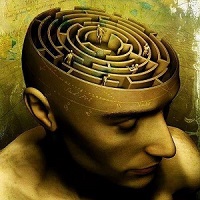
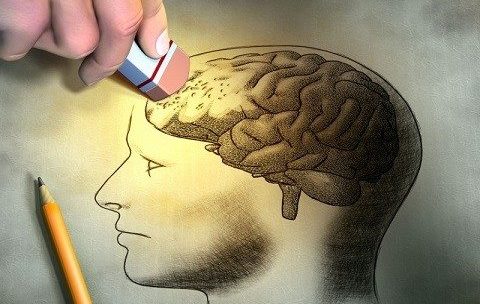

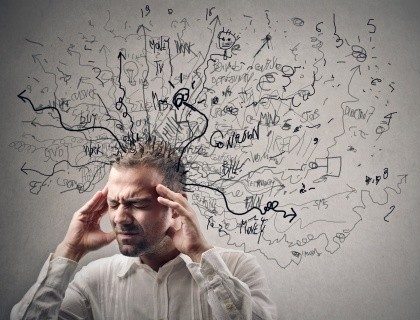
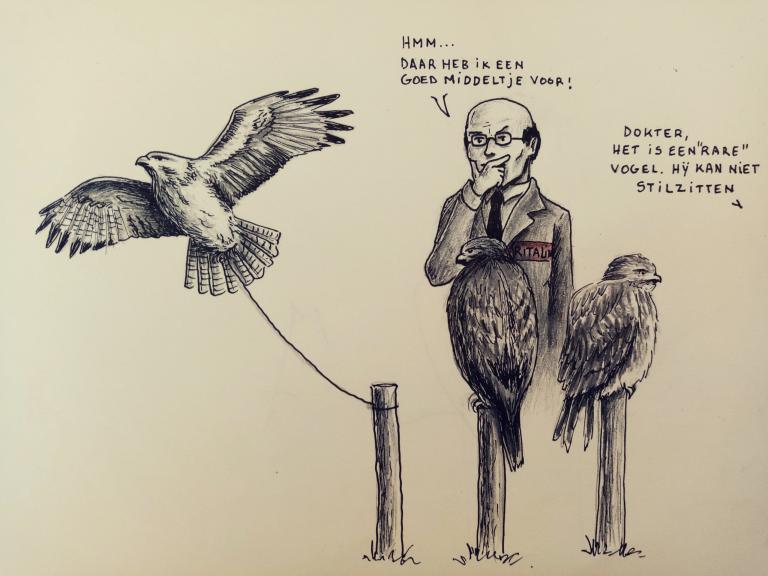



And then being busy all day with your list.... At the end of the day proud of everything you managed.... And then not having done the important things even though they were on the list.... Such a blind spot....
Making lists works fine. But doing the tasks afterwards is a lot harder. I would like tips for that.
Hi,
Try not to put too much pressure on yourself and be proud of the things you do do.
For me, things that I want to do (and not do of course haha) come to mind all day long. As soon as I write it down, I can let it go. After all, I know I can always reach for my list and I don't have to strain my short-term memory. That's more the gist of the tip. That you can empty your head a bit.
Good luck in any case.
Nowadays, we all have a phone with an agenda, if I need to do something, I note it down in my agenda immediately at the same time I have time for it. So instead of jotting it down on a to-do list, I plan it immediately. An example: My girlfriend asks me in the evening if I want to call her about a quote. Then I get the calendar app on my phone and see when I have time for it, e.g. tomorrow at 11 o'clock. I note that down in my diary and turn on notifications. So the next day, I get a notification at 11am and have time to make the call right away. This took me a month to get used to but since then I never have problems forgetting tasks.
Too much text and list-making... that makes an ADDer happy... NOT!
Intention will no doubt be good, but goal missed....
Hi Marja,
I will try to come up with something on that. I will also look into an option to have the page read out loud. There are plug-ins for that. I'll look into it.
By the way, with this article, half of it is a Dutch translation ;) I did that because not everyone can speak English.
Lists can really be of immense value though. I understand your feeling but it does really take chaos out of your head. Of course, we are still AD(H)D'ers and our heads will always be busy but it can feel very neurotic to have to remember everything in your head. You probably then also forget most of it and get frustrated about that in turn. I do think the tip as John Loporto described it in his email is a good option. But to each his own.